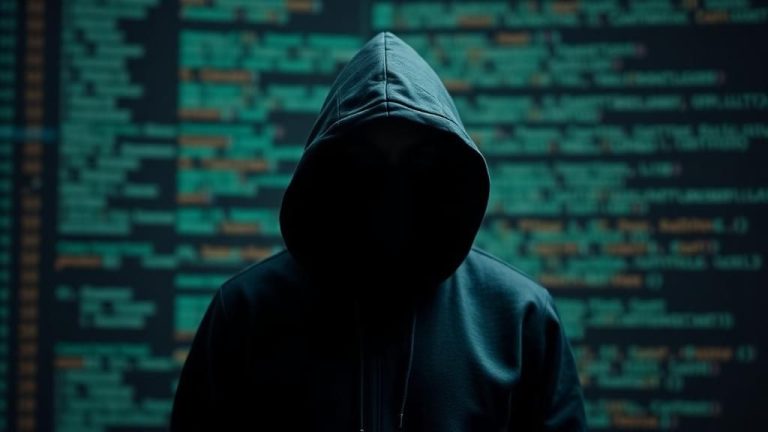The Soapy Joe’s data breach has been confirmed after the Akira ransomware group claimed responsibility for a major cyberattack against Soapy Joe’s Car Wash, a well-known car wash chain headquartered in San Diego, California. According to the attackers, more than 40 gigabytes of sensitive corporate and personal data were stolen, including confidential employee information, financial records, contracts, and medical data.
The Akira ransomware group published the listing for Soapy Joe’s Car Wash on its dark web leak site on November 6, 2025. The post states that attackers obtained full personal information for all employees, including names, phone numbers, Social Security numbers, driver’s licenses, passports, and even medical details. The breach also includes internal financial documents, partner agreements, and confidential correspondence.
Background on Soapy Joe’s Car Wash
Soapy Joe’s Car Wash is a highly recognized regional car wash chain that has won numerous awards and holds a Guinness World Record for its large-scale community events. The company is known for its membership-based car wash model and focus on sustainability.
Operating multiple locations across Southern California, Soapy Joe’s handles thousands of customers and employs a large staff, with data systems managing payroll, HR, financial operations, and partner contracts. These systems appear to have been among those compromised in the Soapy Joe’s data breach.
The company’s popularity and scale have made it an appealing target for ransomware groups seeking public exposure and ransom leverage. Based on available evidence, the attackers infiltrated the company’s internal network and accessed multiple departments, exfiltrating employee and corporate records before deploying ransomware.
Details of the Breach
The Akira ransomware group claims to have stolen more than 40GB of corporate and employee data from Soapy Joe’s Car Wash. The exposed information reportedly includes:
- Employee personal information such as names, addresses, phone numbers, and email addresses
- Identification documents including driver’s licenses, passports, and approximately 2,000 Social Security numbers
- Medical and insurance files related to employee benefits
- Financial records, tax files, and vendor payment information
- Internal contracts, NDAs, and partner agreements
- Confidential corporate communications and administrative records
The data suggests a full compromise of Soapy Joe’s HR, accounting, and administrative systems. Akira’s leak post states that “all personal information of all employees” was obtained, confirming that the breach affected the entire workforce. The inclusion of health and identification data increases the risk of identity theft, fraud, and targeted phishing campaigns.
About the Akira Ransomware Group
Akira is one of the most active ransomware operations in the world, known for targeting small and mid-sized enterprises in the United States and Europe. The group follows a double-extortion model, in which data is stolen before systems are encrypted. Victims who refuse to pay face the threat of having their data publicly released on Akira’s leak portal.
The group often targets organizations that store valuable personal or financial data but lack enterprise-grade security. Its attacks frequently exploit remote access vulnerabilities or weak VPN configurations, allowing deep network infiltration.
Since its emergence in early 2023, Akira has attacked law firms, manufacturers, healthcare providers, and service businesses. The Soapy Joe’s data breach aligns with the group’s pattern of exploiting trusted local companies with large employee bases and sensitive internal records.
Impact and Potential Consequences
The implications of the Soapy Joe’s data breach are significant. The exposure of employee PII, medical records, and financial data could lead to widespread identity theft, insurance fraud, and phishing attacks.
For the company, the stolen data also includes confidential contracts and partner agreements, which could damage vendor relationships or expose business secrets. Leaked internal communications and NDAs can further complicate ongoing negotiations or legal matters.
The presence of health-related data may trigger compliance obligations under HIPAA, depending on how employee medical information was stored or shared. Additionally, California’s stringent consumer privacy laws, including the California Consumer Privacy Act (CCPA), may require the company to formally notify affected individuals and state authorities once the full extent of the breach is verified.
Technical Overview and Attack Method
Although Soapy Joe’s Car Wash has not disclosed technical details, Akira’s past campaigns suggest that the breach likely began with credential theft or the exploitation of an unpatched network service. The attackers typically use reconnaissance tools to map internal systems and identify high-value data before executing encryption.
During the exfiltration phase, Akira operators compress and transfer sensitive files to external servers. This step ensures that they can still profit through blackmail, even if the victim restores from backups. The fact that Akira was able to access such a wide range of employee and corporate data indicates that multiple systems were interconnected and insufficiently segmented.
Company Response
As of publication, Soapy Joe’s Car Wash has not publicly commented on the incident. The company’s website, press pages, and social media accounts contain no mention of a cyberattack or data breach. It is unclear whether the company has engaged forensic investigators or law enforcement.
This silence may indicate that Soapy Joe’s is still assessing the situation or negotiating with the attackers. However, cybersecurity experts caution that delaying disclosure can worsen reputational damage once the data becomes publicly available on the dark web.
Industry Impact and Broader Context
The Soapy Joe’s data breach reflects a broader cybersecurity problem among local and regional service-based businesses. Companies in industries such as automotive care, retail, and hospitality often collect large volumes of employee and customer data but invest minimally in cybersecurity infrastructure.
Ransomware groups like Akira have shifted their focus toward these targets, exploiting the lack of dedicated IT security teams and outdated hardware. Attacks like this one demonstrate that no company (regardless of size or sector) is immune from data theft and extortion.
If the stolen data from Soapy Joe’s is leaked publicly, it could appear on multiple dark web forums and data markets, where cybercriminals resell personal and financial information. These secondary leaks can persist for years, continuing to endanger affected employees and partners.
Recommendations for Affected Individuals
Employees, partners, and contractors associated with Soapy Joe’s Car Wash should take immediate steps to protect their information:
- Change all passwords related to company accounts or reused credentials
- Monitor financial accounts and credit reports for suspicious activity
- Be alert for phishing emails referencing Soapy Joe’s or Akira ransomware
- Report any suspected identity theft to relevant authorities and credit bureaus
- Use reputable anti-malware tools such as Malwarebytes to scan devices for compromise
Ongoing Investigation and Outlook
The Soapy Joe’s data breach adds to a growing list of ransomware incidents targeting service-oriented businesses across the U.S. With more than 40GB of sensitive employee and financial data at risk, the potential fallout is substantial.
If the company fails to pay the ransom, Akira is likely to publish the stolen data in full, making it accessible to other cybercriminals. This could lead to a secondary wave of fraud, identity theft, and extortion attempts.
The breach underscores the importance of cybersecurity investment, employee training, and proactive monitoring for all businesses handling personal or financial information. Even companies outside the traditional tech or financial sectors must recognize that their data holds immense value to threat actors.
For verified coverage of major data breaches and the latest cybersecurity reports, visit Botcrawl for expert analysis on ongoing cyber threats and ransomware attacks.



